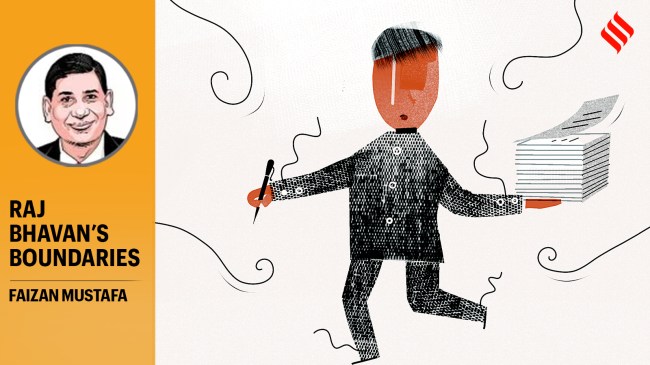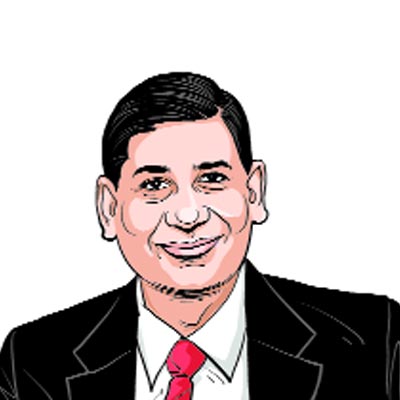Opinion Supreme Court’s judgment on Tamil Nadu governor: Why governors are so partial to the Centre
Governors behave in this manner because they have no security of tenure. Let us give them some security of tenure like judges, and they would act more independently
 Tamil Nadu Governor R N Ravi (File Photo)
Tamil Nadu Governor R N Ravi (File Photo) “The good governors should have a broken leg and keep at home,” said Miguel de Cervantes. These were the ideals under which the governor was envisioned as having a faint presence, like a full moon on a mid-day. His primary role as a sagacious counsellor was “to be consulted, to warn and to encourage”. He has to be above politics. But India’s experience with governors has been quite disappointing.
It seems that governors appointed by the current government have gone far beyond their Congress-nominated counterparts in making elected state governments non-functional. Not only has there been an unfortunate tug of war on the appointment of vice-chancellors, nominations to the state legislative councils and the editing of the customary address by the governor or summoning of the House but also the delay/denial of assent to bills passed by legislative assemblies.
The relationship between governors and opposition chief ministers has never been so strained, except for a few exceptions when the chief ministers were dismissed, and President’s Rule was imposed during the tenure of erstwhile Congress governments. Justice J B Pardiwala and R Mahadevan’s historic judgment on April 8 is the bold answer to remedy this decline. Elected representatives should indeed have more powers than nominated governors. States should be free to legislate on the 66 subjects that are under their exclusive jurisdiction as per the Seventh Schedule. The Supreme Court, invoking its extraordinary powers under Article 142, has laid down strict timelines for assent to bills by governors.
The Court has scrapped the myth that governors under Article 200 have been given absolute discretion with respect to assenting bills passed by the elected representatives. Justice Pardiwala, by laying down time limits for assent, reconsideration or reserving the bill for presidential assent, saved federal democracy from the clutches of unelected governors who, under Article 159, are obliged to preserve, protect and defend the Constitution.
The Tamil Nadu governor’s decision to withold assent for months and then referring as many as 10 bills passed by the assembly for reconsideration for the President has rightly been found arbitrary and thus unconstitutional. In an unprecedented finding, the Court has deemed all bills from the date submitted to the governor as assented. It even found the governor’s actions were not bona fide because he only acted after the Supreme Court’s observation against the governor withholding assent in a 2023 case from Punjab. Even the presidential action on them has been deemed non est in law.
Despite our opposition to the office of governor during colonial rule, it was retained to preserve the unity, stability and security of the country. Jawaharlal Nehru favoured the appointment of eminent academicians from outside politics and other outstanding and impartial people from other walks of life as governors. Initially, B N Rau, then the constitutional advisor to the constituent assembly, had proposed that the governor be elected by the provincial legislature by secret vote. Sardar Patel, who headed the Provincial Constitution Committee too had recommended that the governor should be elected by the people of the state for a term of four years and could be impeached for “misbehaviour”. Jayaprakash Narayan wanted the governor’s appointment to be made by the President out of a panel of four persons selected by the Assembly and Members of Parliament of the concerned state.
Subsequently, a nominated governor was preferred for several reasons: An elected governor may come in conflict with the chief minister. Due to his popular support, the governor may encourage separatist tendencies or may join hands with the chief minister and defy the Centre’s dictates. Finally, Ambedkar settled the issue by saying that since the governor is just a figure or nominal head, we should not spend time and money on his election. He said that governors will not represent the ruling party at the Centre but the people of the state. The central government would always consult chief ministers in appointing governors. T T Krishnamachari said that the chief minister would have veto power in this regard. Even the Sarkaria Commission (1983) recommended the same thing and said the Vice-President and Speaker of Lok Sabha should also be consulted.
None of these recommendations were followed by any ruling party at the Centre. According to Edward Coke, barrister and former United Kingdom Solicitor General, discretion is a science – in that discerning between falsity and truth, between right and wrong, is not to do according to will and private affection. Absolute discretion is constitutional blasphemy. Justice William Douglas of the United States Supreme Court observed, “Where discretion is absolute, man has always suffered. Absolute discretion is a ruthless master (which is) more destructive of freedom than any of man’s other inventions. (United States v Wunderlich, 1951)”
most read
Thus, even on the subjects over which the governor has discretion, he does not have unrestricted or arbitrary power. Discretion means choosing from amongst the various available alternatives with reference to the rules of reason and justice, not personal whims. First, discretion is to be exercised with caution and in a reasonable manner. Second, discretion cannot be exercised under dictation. In most cases, governors take orders from the Centre and seem to act more as party members than as independent and impartial constitutional functionaries. Third, discretion is to be exercised after proper application of mind to the facts and circumstances of the case at hand. Fourth, discretion cannot be exercised for an improper purpose or with bad faith or by taking into account irrelevant considerations. Fifth, discretion cannot be exercised in an arbitrary or whimsical manner.
The SC in Raghukul Tilek (1979) held that governors are not employees of the Centre but hold high constitutional office. But governors behave in this partisan manner because they have no security of tenure. They have less protection than a junior civil servant. Let us give them some security of tenure like judges, and they would act more independently.
The writer is Vice-Chancellor, Chanakya National Law University, Patna. Views are personal






